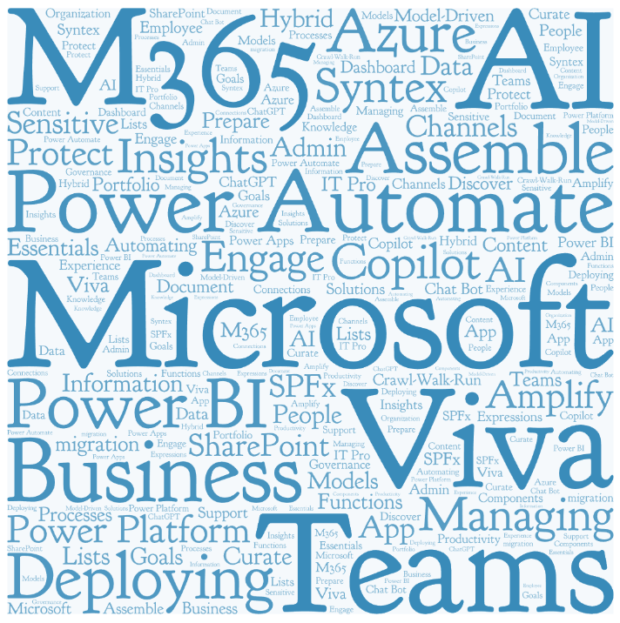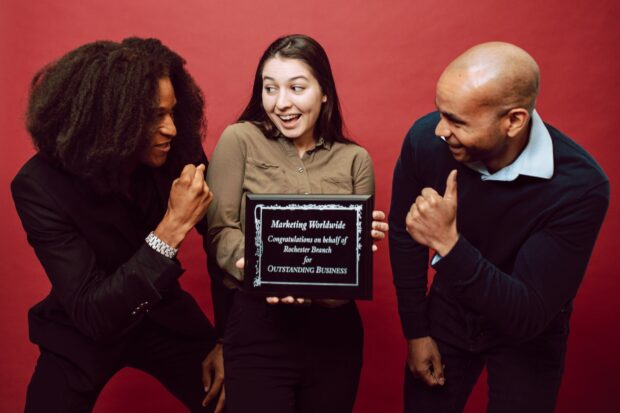Why should you participate in the community? Like ours, and many others. User groups, meetups, conferences and the like. We just missed the last outdoor Power BI meetup for 2023, but they’ll be back – probably at Surly again – until then, indoor places…
What is it?
Our event this coming Saturday November 11th: It’s a day of free training on topics in, around, and tangential to Microsoft’s M365: Teams, SharePoint, Planner, OneDrive, Viva, Azure, Power Platform, and more. The word cloud above is from session titles that will be presented on Saturday.
10 rooms, 4 time slots, 34 sessions. In person only. No recordings or online availability. Come mix it up with folks from all over the Upper Midwest – organizations big and small. We’ll have donuts and pizza.
Free Content
A number of us just returned from 365EduCon Chicago – the most recent in a handful of larger conferences and education opportunities that can require a substantial investment from employers and attendees. Community events like Community Days and our M365 Twin Cities event are FREE or have nominal fees. Community Days events are fantastic opportunities to learn – for the cost of your time – and have other benefits as well.
Come and hear from many of the same presenters you’ll see at the larger events. Get the latest news on what’s coming, what’s been released, what’s changed, best practices, case studies, and more.
Access to Presenters
Do you have questions about a certain topic? Check the schedule to see what’s being presented and who’s going to be on-site presenting. Even if they’re not talking about your topic, they might be a SME (subject matter expert) that can answer questions about something you’re working on or stuck on.
Networking
It’s not just about building a network for when you make your next job hop. It’s about building a peer group for the job you’re in. Sharing findings, best practices, what works, what doesn’t, etc.
Talk to people. Seriously as good as the content will be, the best thing you can do is talk to folks. Get outside your comfort zone a bit.
As of today: closing in on 400 registrations which will likely yield about 250 folks on site the day of the event.
Socks and LEGO
Vendors and sponsors love to give stuff away. There’s always swag. 🙂 Socks are still all the rage – I don’t understand why – but they are. Stickers and can koozies, pens, and more. Come and check out the assortment.
Links and more reading
- Registration: https://M365TwinCitiesFall23.eventbrite.com
- Downloadable schedule: http://www.m365tc.com/Schedule-NOV2023.docx
- Online schedule (don’t forget opening and closing sessions): Community Days | M365 Twin Cities
- Our site: M365 Saturday – Twin Cities (m365tc.com)
- http://www.idubbs.com/blog/2023/community-events-connections/
- http://www.idubbs.com/blog/2023/community-events-local-reach/
- http://www.idubbs.com/blog/2023/community-events-find-your-context/





